Sharks and Rays
Sharks, rays, and skates are all classified as elasmobranchs. These animals have some adaptations that are unique to them, including have cartilaginous skeletons, ampullae of loranzini, and more.
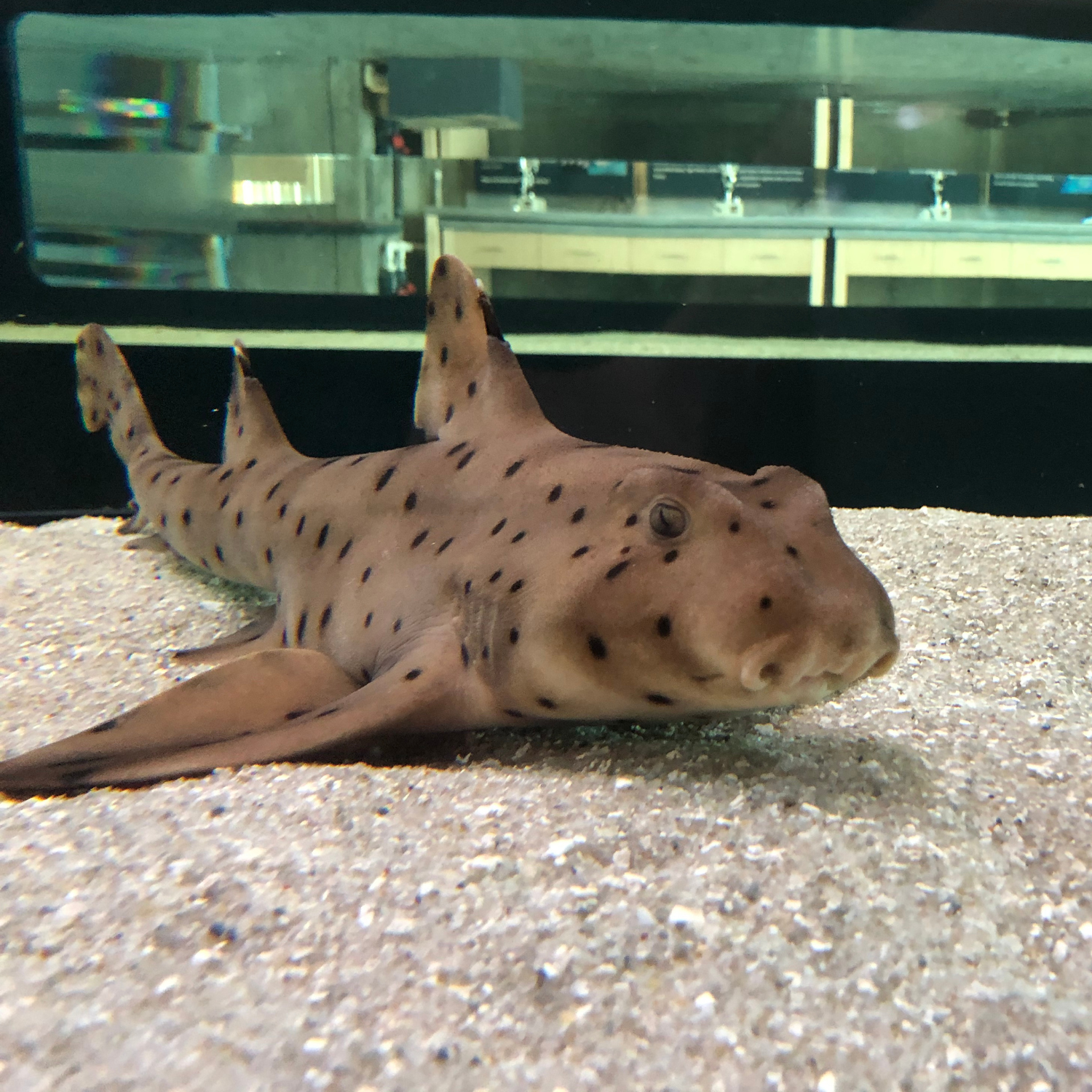
Horn Shark
Heterodontus francisci
- Diet: small fish, mollusks, urchins and crustaceans
- Habitat: sandy bottoms, kelp forests, rocky reefs
- Range: central CA to Gulf of CA
- Lifespan: 12 years
- 2 horns – one at base of each dorsal fin
- Nocturnal
- Females lay screw-shaped eggs (also called a “mermaid’s purse”) lodged into rocky crevices until hatching
- Large oil-filled liver for buoyancy instead of swim bladder
- Both the horn sharks in our Shark and Ray Discovery Pool are female
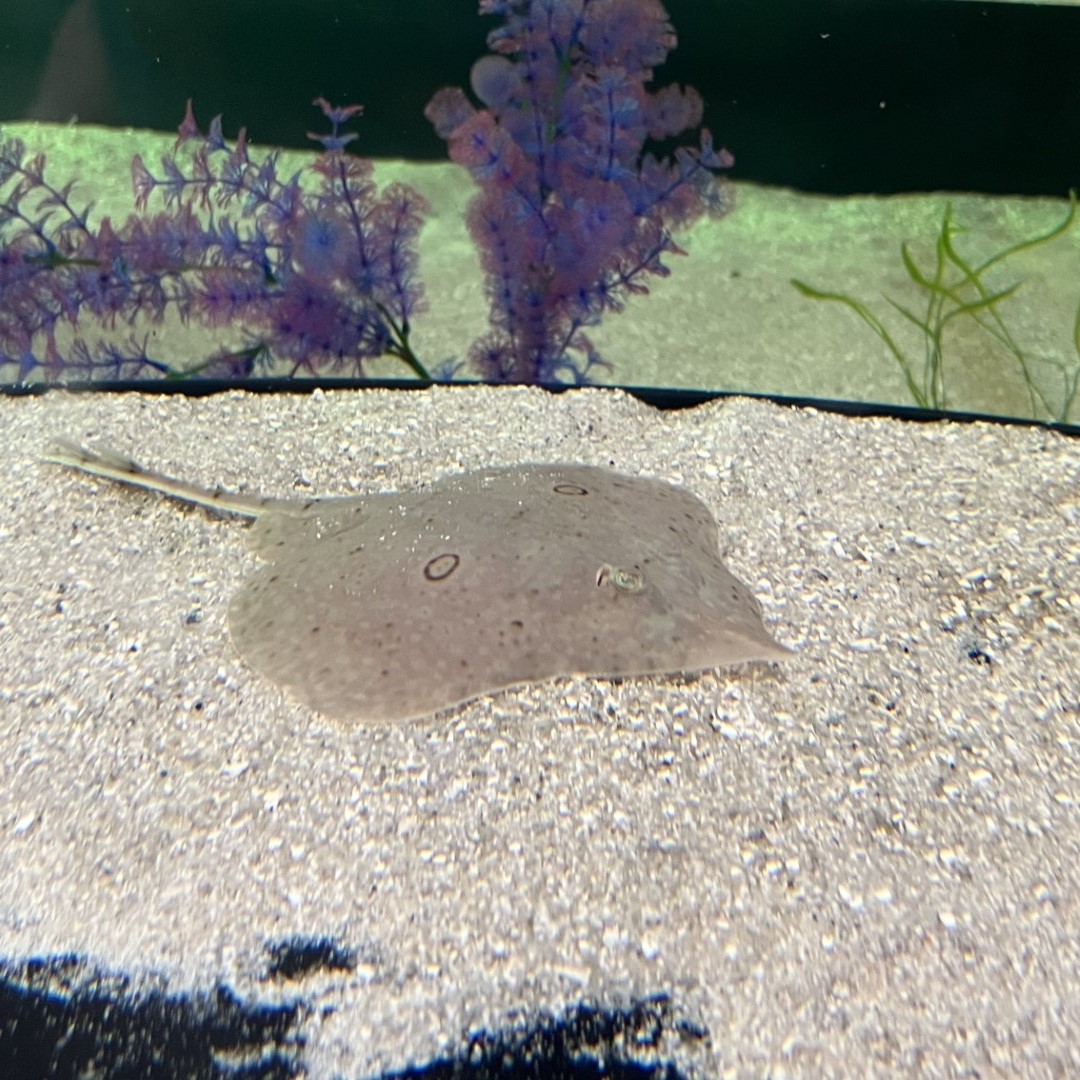
California Skate
Caliraja inornata
- Diet: shrimp, crabs, fishes
- Habitat: sandy bottoms
- Range: Canada to Baja CA; Gulf of CA
- Lifespan: 7-8 years
- Mouth on bottom (ventral) side so eats off ground
- Different from rays because no venomous spine
- Countershading
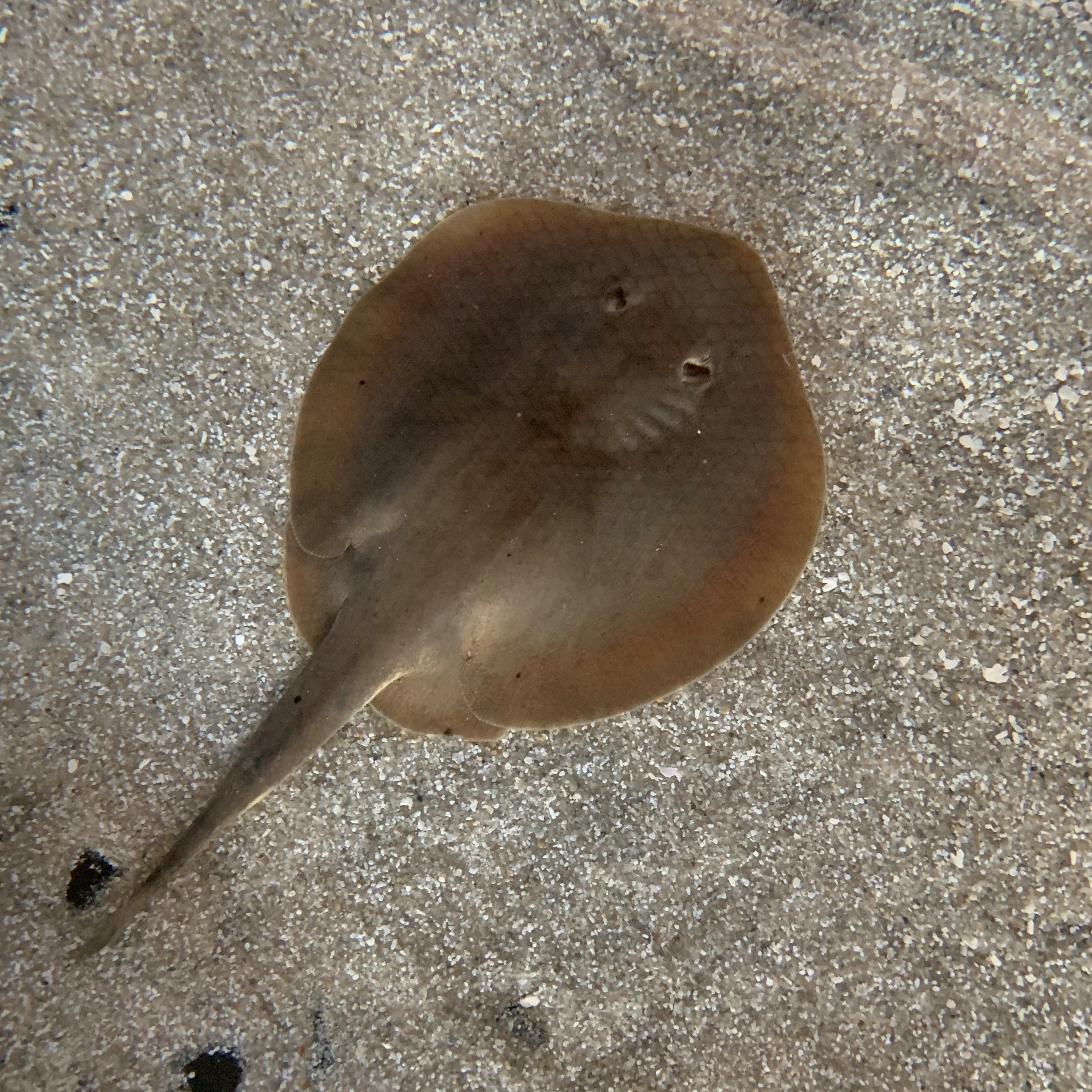
Round Ray
Urobatis halleri
- Diet: worms, crabs, snail, small fish
- Habitat: sandy bottoms
- Range: northern CA to Peru
- Lifespan: 10-12 years
- Countershading
- Prefer warmer waters
- Give live birth
- Barbs in tail – sting when spine is perturbed (our rays still have barbs in tail. as removing them is similar to ripping off fingernails from a human; our rays have never stung a person before due to careful touching)
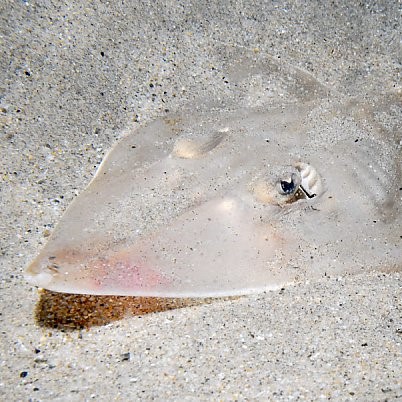
Shovelnose Guitarfish
Rhinobatos productus
- Diet: worms, crabs, clams, small fish
- Habitat: sandy bottoms
- Range: central CA to southern Mexico
- Lifespan: 11-16 years
- Countershading
- Give live birth in breeding grounds
- Feed in warm waters and rest in cool waters
- Nocturnal
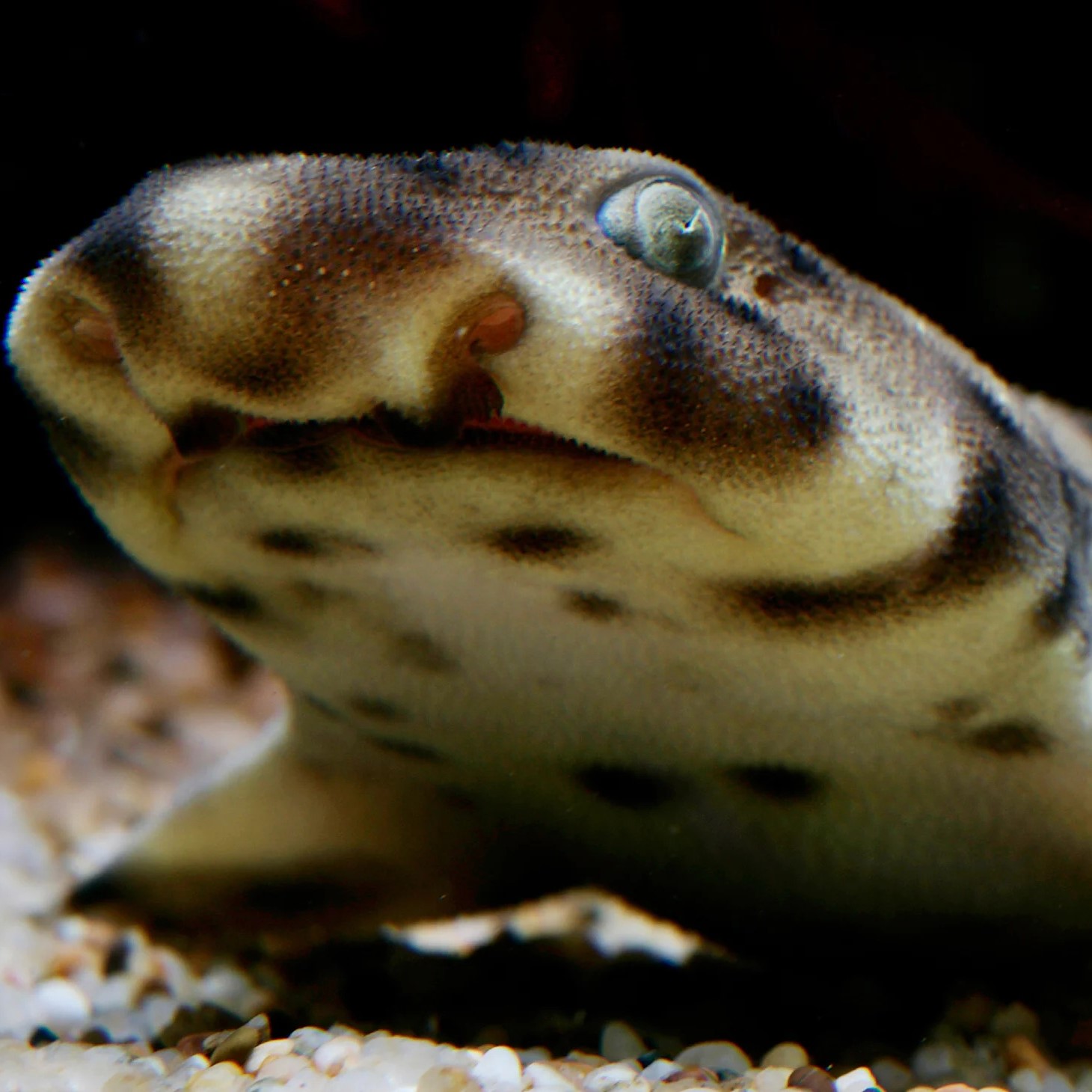
Swell Shark
Cephaloscyllium ventriosum
- Diet: crabs, clams, small fish
- Habitat: kelp forest/rocky bottoms
- Range: central CA to southern Mexico
- Lifespan: 20-35 years
- Females lay eggs (mermaid’s purse) and attach them to rocks
- Can inflate or “swell” to twice its natural size when threatened
- Nocturnal
